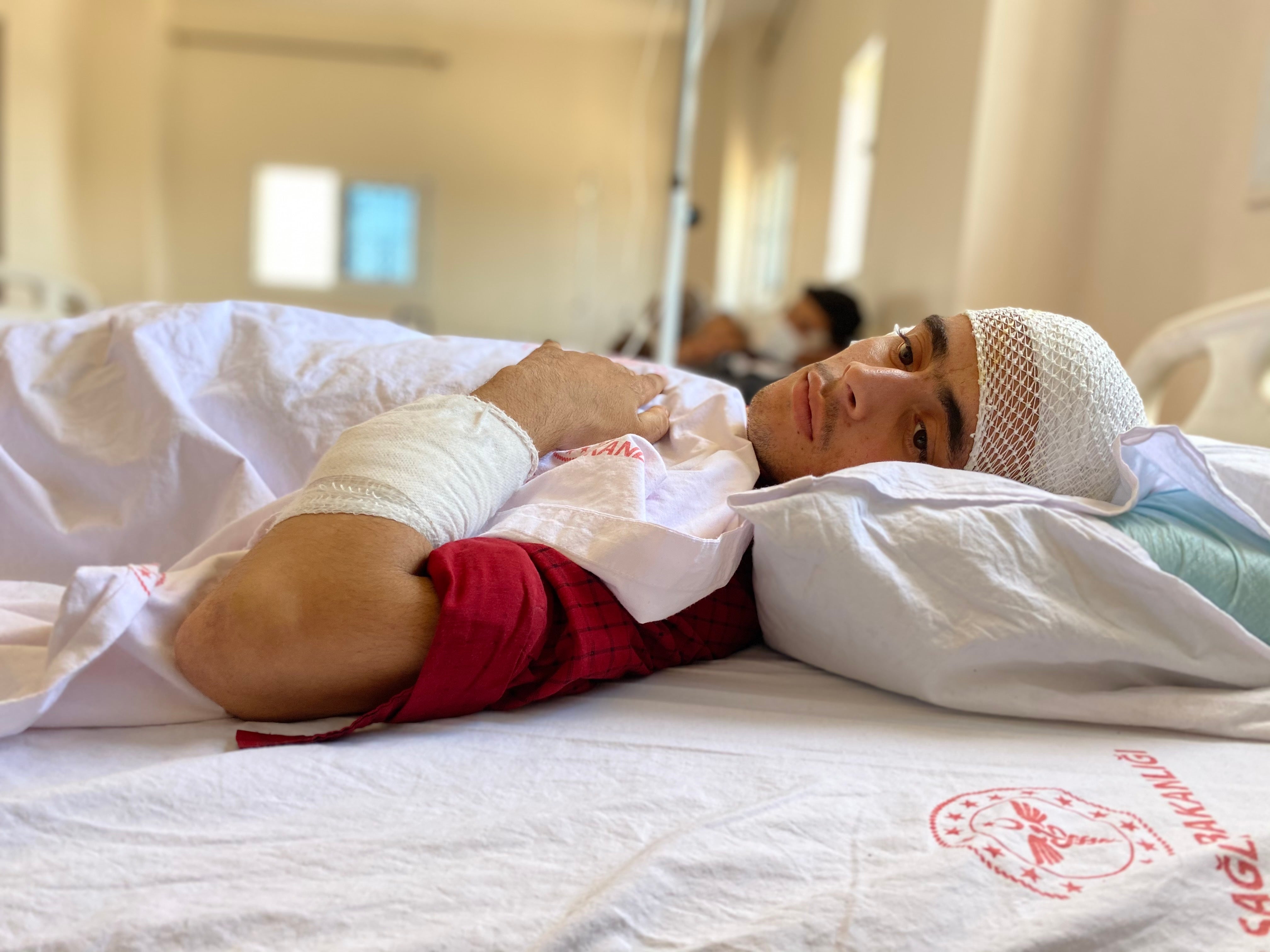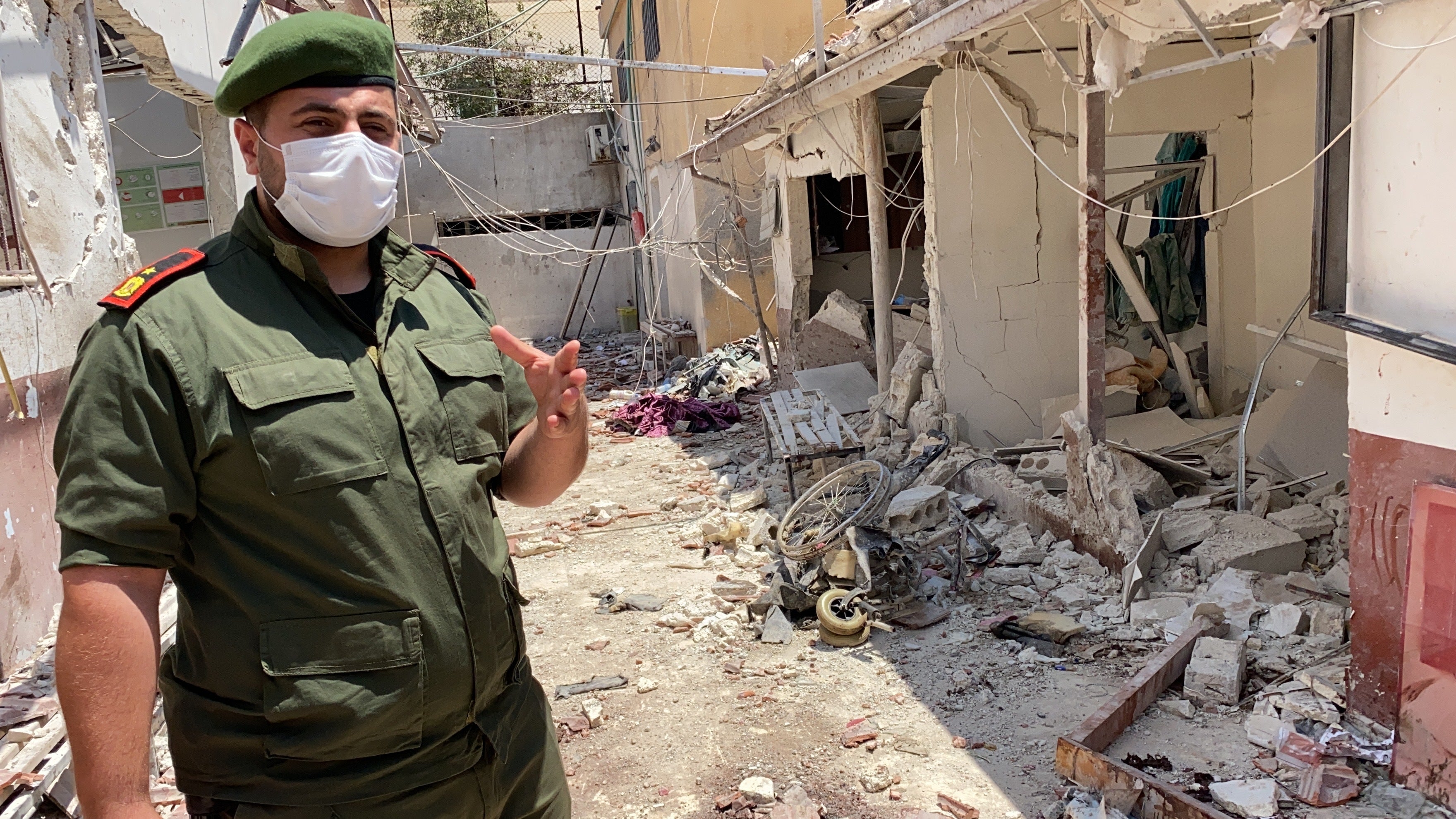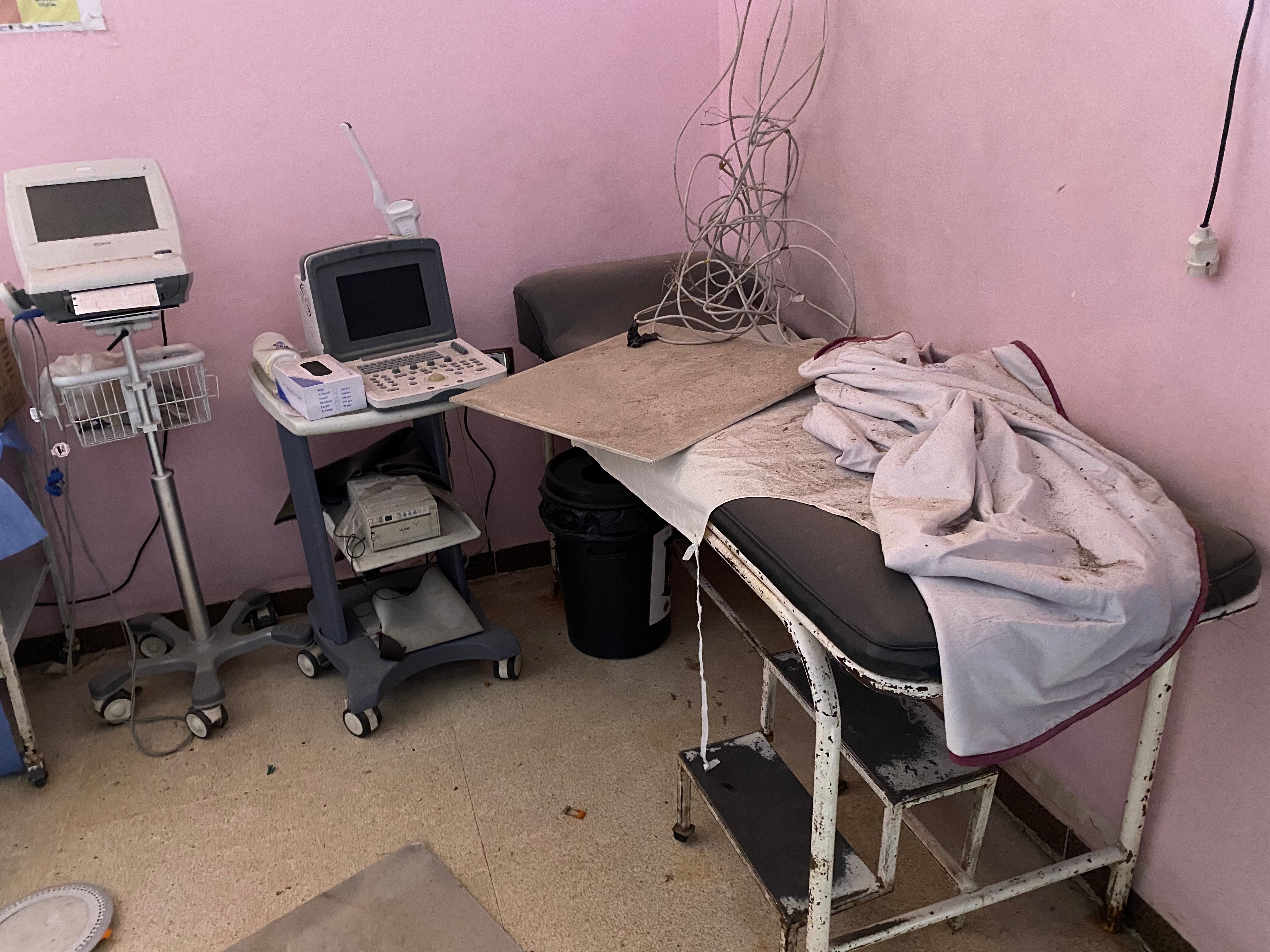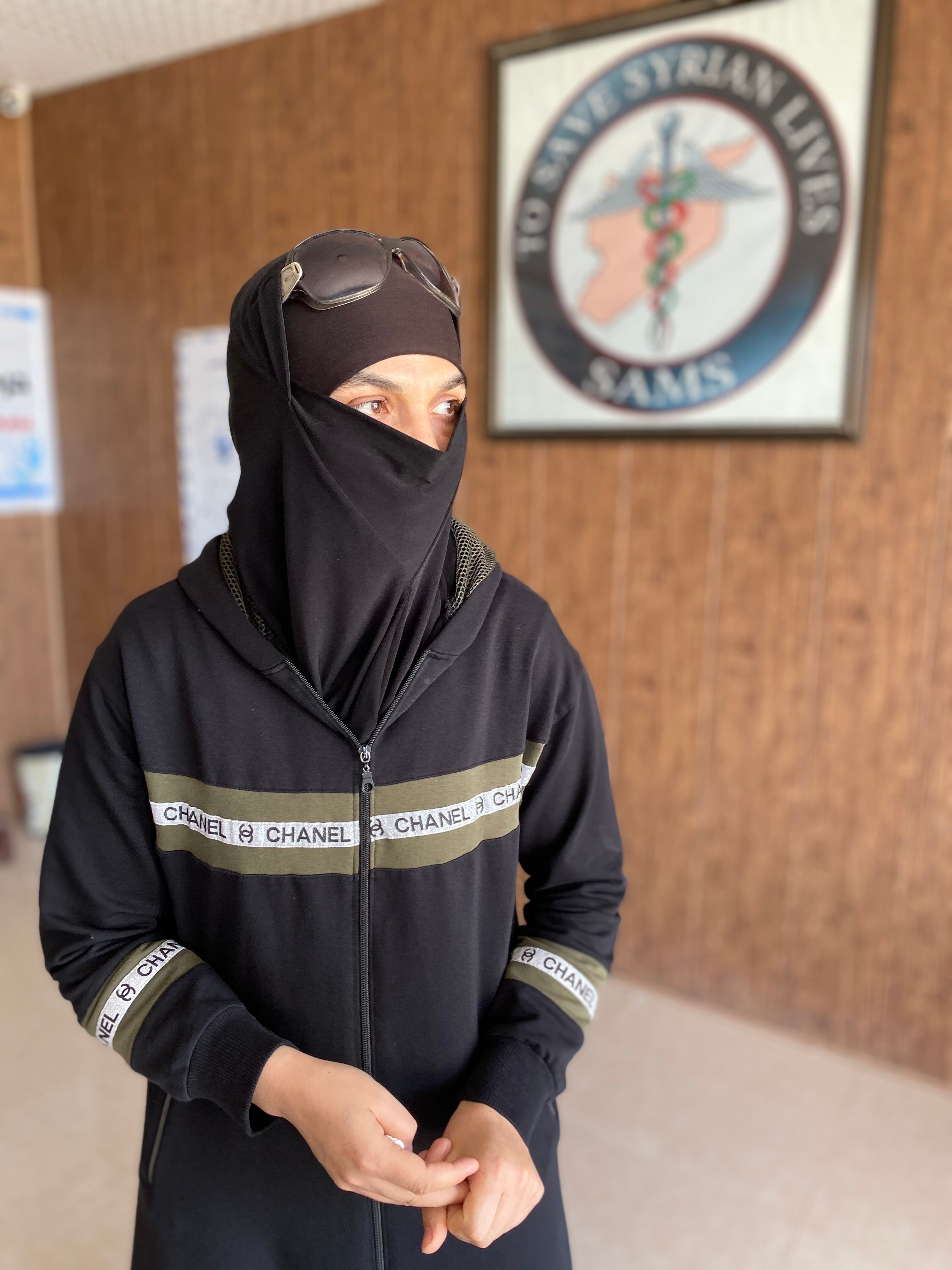‘It was horrible, terrifying.’ Syria’s wars are not over. And its hospitals are still being bombed
A visit to a hospital in Syria’s north following a series of rocket attacks lays bare the devastating impact of continued conflict
Your support helps us to tell the story
From reproductive rights to climate change to Big Tech, The Independent is on the ground when the story is developing. Whether it's investigating the financials of Elon Musk's pro-Trump PAC or producing our latest documentary, 'The A Word', which shines a light on the American women fighting for reproductive rights, we know how important it is to parse out the facts from the messaging.
At such a critical moment in US history, we need reporters on the ground. Your donation allows us to keep sending journalists to speak to both sides of the story.
The Independent is trusted by Americans across the entire political spectrum. And unlike many other quality news outlets, we choose not to lock Americans out of our reporting and analysis with paywalls. We believe quality journalism should be available to everyone, paid for by those who can afford it.
Your support makes all the difference.Daid al-Kamel was visiting a neighbour when the first round of Grad rockets struck. The frail 60-year-old was not hit, but the impact knocked her out, and when she came to, she was in a state of shock.
Another neighbour took her to the emergency room at nearby Al-Shifaa Hospital, where the injured from the 12 June attack in the northeastern Syrian city of Afrin had been taken. Her 33-year-old son Abdullah had just arrived to attend to her when the second round of rockets landed on them.
Suddenly, the emergency room became a cauldron of smoke, dust, human flesh and twisted metal. The kind neighbour who had brought Daid to the hospital lay dead. One of the wounded screamed at nurse Abdullah Wanusah for help. But the 25-year-old, who had survived several attacks on hospitals in the eastern suburbs of Damascus before being displaced to Afrin in 2018, was also wounded in the head and covered in blood.
“Look at me,” he recalls saying to her, while being treated for shrapnel wounds at another hospital. “I cannot help you.”
The rocket attacks on Saturday in the northeast city of Afrin left at least 20 people dead and scores more injured.
The authorities of the Turkish-protected pocket of northwest Syria blamed the attack on the Syrian Democratic Forces, the Kurdish-led militia that controlled the area until it was wrested from them in a 2018 war.
But the SDF has vehemently denied responsibility for the attack on the hospital, which is funded in part by the United States charity, the Syrian American Medical Society. It was among hundreds of bombings of hospitals and clinics mostly carried out by the Syrian regime and its Russian patrons over the last decade of war.

“The SDF categorically denies that any of its forces were responsible for or involved in the tragic attack [on the] hospital in Afrin,” Mazloum Abdi, commander of the western-backed force that controls much of northeast Syria, said in a note posted to Twitter. “We are deeply saddened by the loss of innocent life. We condemn the attack without reservation. Targeting hospitals is a violation of international law.”
No one has claimed responsibility for the attack.
Turkish authorities organised a brief, rare visit to Afrin to visit the bombed-out and now shuttered hospital site for The Independent and the France 24 television network, transporting us into the city and to the hospital in a small convoy of armoured vehicles.
Both Ankara and the Syrian political and security leadership say they believe the SDF was responsible for the attack, noting that the group controls the Tal Rifaat pocket just to the other side of an adjacent mountain. They describe repeated rocket attacks on Afrin, which SDF claims as a canton of its quasi-state, called Rojava. Al-Shifaa is next to a major security installation that is staffed by former Syrian rebel fighters and Turkish security advisers.

“This is not the first time the [SDF] attacks this area,” says Mohammed Sheikh-Rashid, head of the local municipal council. “They have often attacked the area around the hospital, but never the hospital itself.”
Syrian regime forces and allied Iranian-backed Shia militias also lie within rocket range.
Its survivors paint a horrific picture. One rocket struck the triage and emergency annex where patients from the previous attack in the nearby neighbourhood were waiting, along with others seeking medical assistance.
Another hit the delivery room. Among those killed was a woman giving birth to a child and another in labour and waiting to deliver. Both their unborn infants were also killed, as was a midwife serving in the ward.
A child in a wheelchair at the hospital was killed. Among the gruesome finds in the rubble during the visit on Monday was a child’s jaw fragment presumed to have been from one of the dead.
Ahlam Aarabi is a 31-year-old nurse who was on duty at the maternity ward when she was summoned to the emergency room to help with the injured and dying from the first attack. “Suddenly, it was dark and dust rose around us,” she recalls. “When I opened my eyes all I could see was flesh. It was horrible, terrifying what I saw.”

Ibrahim Khatib, the 40-year-old manager of the hospital’s food outlet, hustled his traumatised 11-year-old son Qusay to safety in the main hospital building before rushing to rescue the wounded. “I saw body parts on the ground,” he recalls.
Kamel and her son are still haunted by the blast that left them with burns, shrapnel wounds, and broken limbs at the main Afrin hospital. They fled to Afrin from Idlib last year, hoping to escape the advancing Syrian regime forces.
“Last night I dreamt of the dead man who saved me, and I was back in that horrible place,” she says from her hospital bed.
The attack on the hospital is being seen by Turkish authorities and their allies as an attempt to undermine what they describe as progress in providing services and improved quality of life in Afrin. Unlike other Syrian areas, including those under the control of the regime, Afrin receives 24 hours of electricity and has running water. New roadways have been built by Turkish contractors. There are signs of nascent commercial activity.

Al-Shifaa hospital was renovated and reopened in 2018, supplementing the main Afrin hospital where Covid patients are treated.
The attempted regeneration of the region is in part a counter-insurgency strategy. Ankara does not want the SDF to win the support of locals. The group is affiliated with the Kurdistan Workers Party (PKK), which is deemed a terrorist organisation by Turkey and has been at war with the Turkish state since the 1990s.
Turkey also hopes that improving the quality of life in Afrin and other areas of Syria under its control, including Tal Abyad and Azaz, will draw the return of some of the 3.5 million Syrian refugees living in Turkey.
Many of those living and working in Afrin, including those wounded and killed in the attack, came from other parts of Syria, transported by the infamous green buses the regime uses to relocate those living in areas it has recaptured.
They want to send a message that you cannot live safely here, that you cannot live with security here, that you cannot live without fear
The SDF and independent human rights groups have accused Turkish authorities and their local Syrian affiliates of social engineering, pushing out ethnic Kurds from Afrin in order to make way for Syrians displaced by the war.
“People from other parts of Syria came here and took the empty houses,” one pharmacist in Afrin acknowledges.
But others say any human rights abuses took place only in the chaotic early weeks after the capture of Afrin. Sheikh-Rashid, the municipal council chief, noted that he was an ethnic Kurd, and accused the SDF of attempting to undermine the progress that he believes has been made in Afrin.
“If they want to fight there is a front line and we have armies and we can fight,” he says. “But they want to kill as many civilians as possible. They want to send a message that you cannot live safely here, that you cannot live with security here, that you cannot live without fear.”

Join our commenting forum
Join thought-provoking conversations, follow other Independent readers and see their replies
Comments